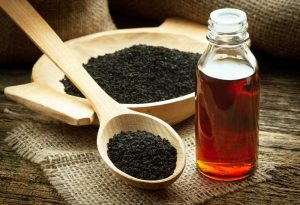Last Updated on 1 year ago by Nicky Johnson
Nicotinamide mononucleotide (NMN) has garnered considerable attention in recent years for its potential anti-aging and energy-boosting benefits. This compound plays a crucial role in the production of nicotinamide adenine dinucleotide (NAD+), a vital molecule involved in energy metabolism and cellular repair processes.
As research into NMN expands, many people are curious about the optimal dosage for reaping its purported health benefits without experiencing adverse effects. This article delves into the nuances of NMN dosage, offering insights into current research findings, recommended doses, and considerations for safe consumption.
Understanding NMN and Its Benefits
Blog Contents

NMN is a precursor to NAD+, meaning it contributes to the biosynthesis of this essential molecule in our cells. NAD+ levels naturally decline with age, leading to a decrease in cellular vitality and an increase in age-related health issues. Supplementation with NMN aims to boost NAD+ levels, potentially reversing some aging effects and improving metabolic functions. Early studies in animals have shown promising results, including enhanced muscle function, improved insulin sensitivity, and increased longevity.
However, translating these findings to humans requires further research. The benefits of NMN in humans are still under investigation, with studies focusing on its impact on metabolic health, energy levels, and aging biomarkers. While anecdotal evidence supports its energy-boosting effects, scientific consensus on its efficacy and safety for long-term use remains to be established.
Recommended Dosages Based on Research
Determining the right NMN dosage is complex, as it can vary based on factors such as age, health status, and individual goals for supplementation. Most human studies have used doses ranging from 250 mg to 500 mg per day, demonstrating these levels to be generally safe and potentially effective in increasing NAD+ levels. For instance, a study published found that supplementation with 500 mg of NMN daily improved various metabolic markers in older adults.
It’s important to note that while these dosages are based on current research, optimal dosing may differ among individuals. The body’s response to NMN can vary, and what works for one person may not be suitable for another.
Consulting with a healthcare provider before starting NMN supplementation is crucial, especially for those with underlying health conditions or those taking other medications.
Safety and Side Effects
NMN is considered safe for most people when taken at recommended dosages. The studies conducted so far have reported few adverse effects, with the most common being mild gastrointestinal issues such as nausea or indigestion. These side effects are typically transient and can often be mitigated by adjusting the dose or taking NMN with food.
Despite its safety profile at lower doses, the long-term effects of high-dose NMN supplementation are not well understood. High doses, especially those exceeding 1,000 mg per day, may pose unknown risks and should be approached with caution. As with any supplement, the key to minimizing risks is to adhere to recommended dosages and engage in regular monitoring by healthcare professionals.
Personalizing Your NMN Dosage

Personalizing NMN dosage requires considering individual health goals, baseline NAD+ levels, and any existing health conditions. Starting with a lower dose, such as 250 mg per day, and gradually increasing as needed can help identify the most effective and tolerable dose.
Monitoring your body’s response and adjusting the dosage accordingly is essential for maximizing benefits while minimizing potential side effects.
For those seeking to enhance their NMN regimen, combining supplementation with lifestyle factors known to naturally boost NAD+ levels, such as regular exercise and a balanced diet, may amplify its effects. Remember, supplementation should complement, not replace, healthy lifestyle choices.
Concluding Thoughts on NMN Dosage
Determining the ideal NMN dosage involves a careful balance between scientific evidence, individual health needs, and personal goals. While research suggests that doses between 250 mg and 500 mg per day are safe and potentially beneficial, personalization and professional guidance are key to optimizing outcomes.
As research progresses, our understanding of NMN and its optimal dosage for health and longevity will likely evolve. Until then, approaching NMN supplementation with caution and a focus on holistic well-being is advisable for those exploring its potential benefits.







